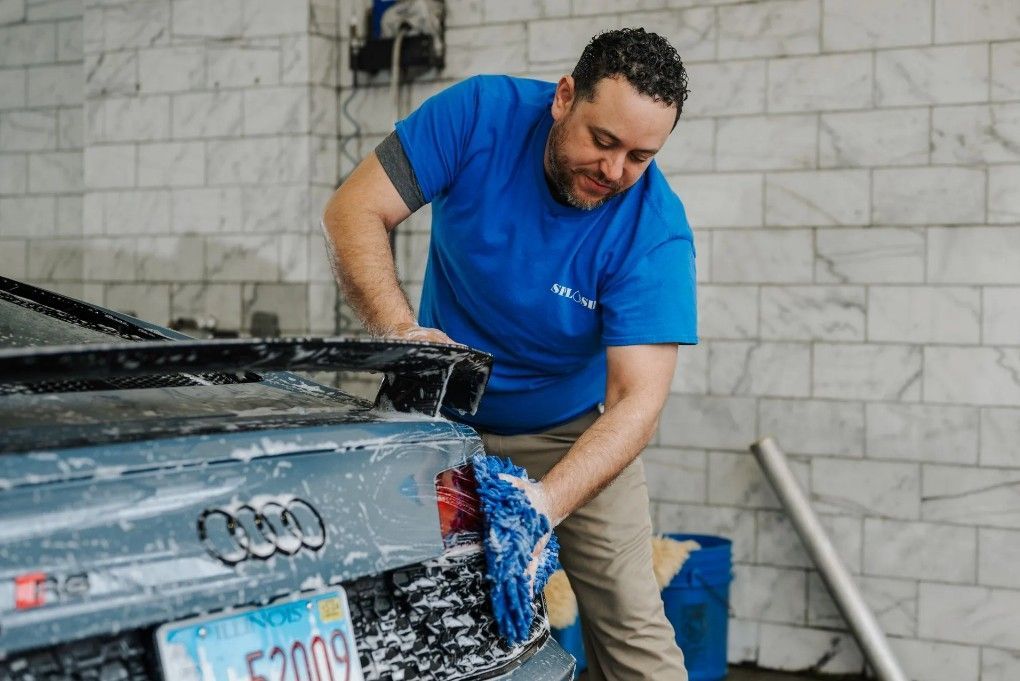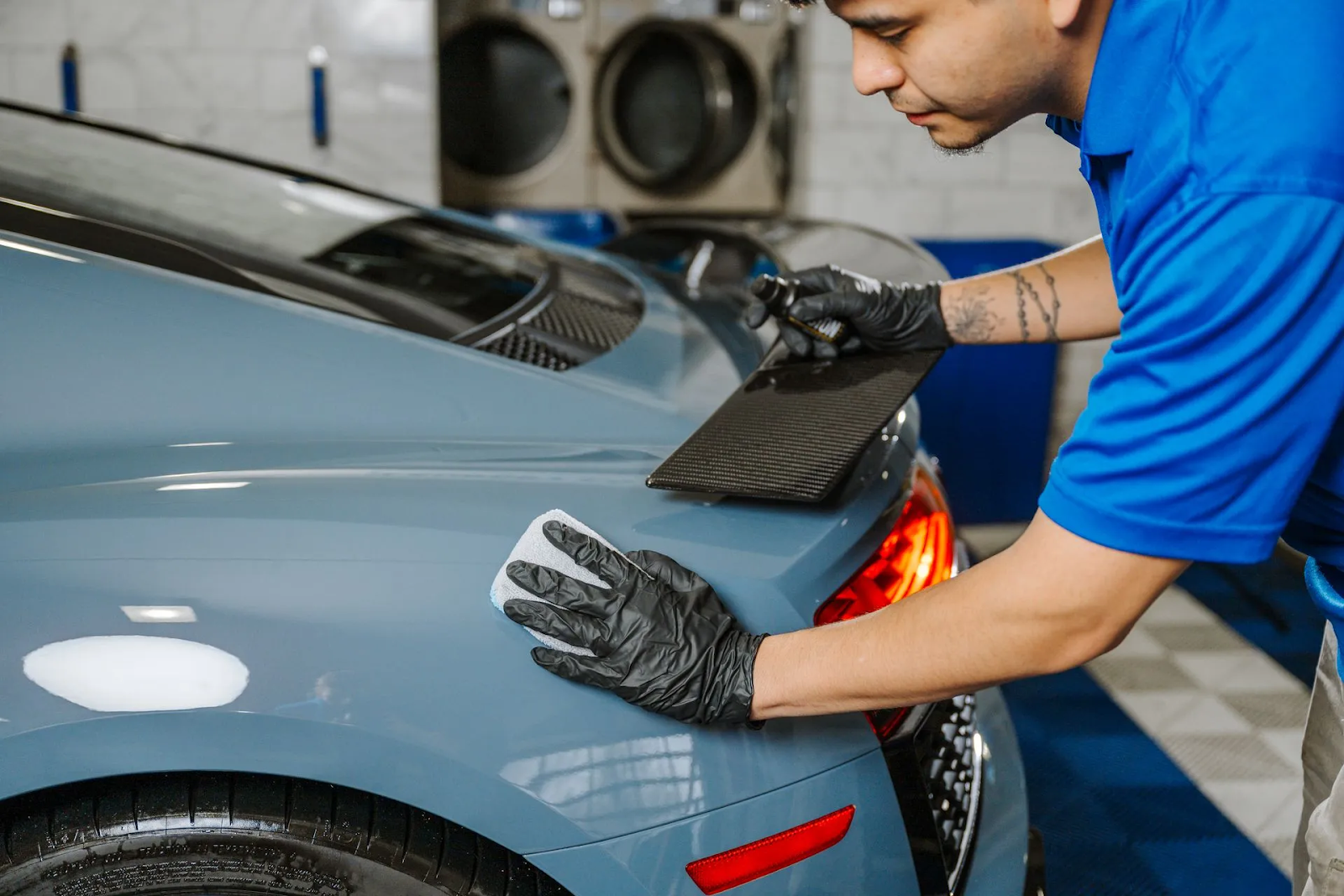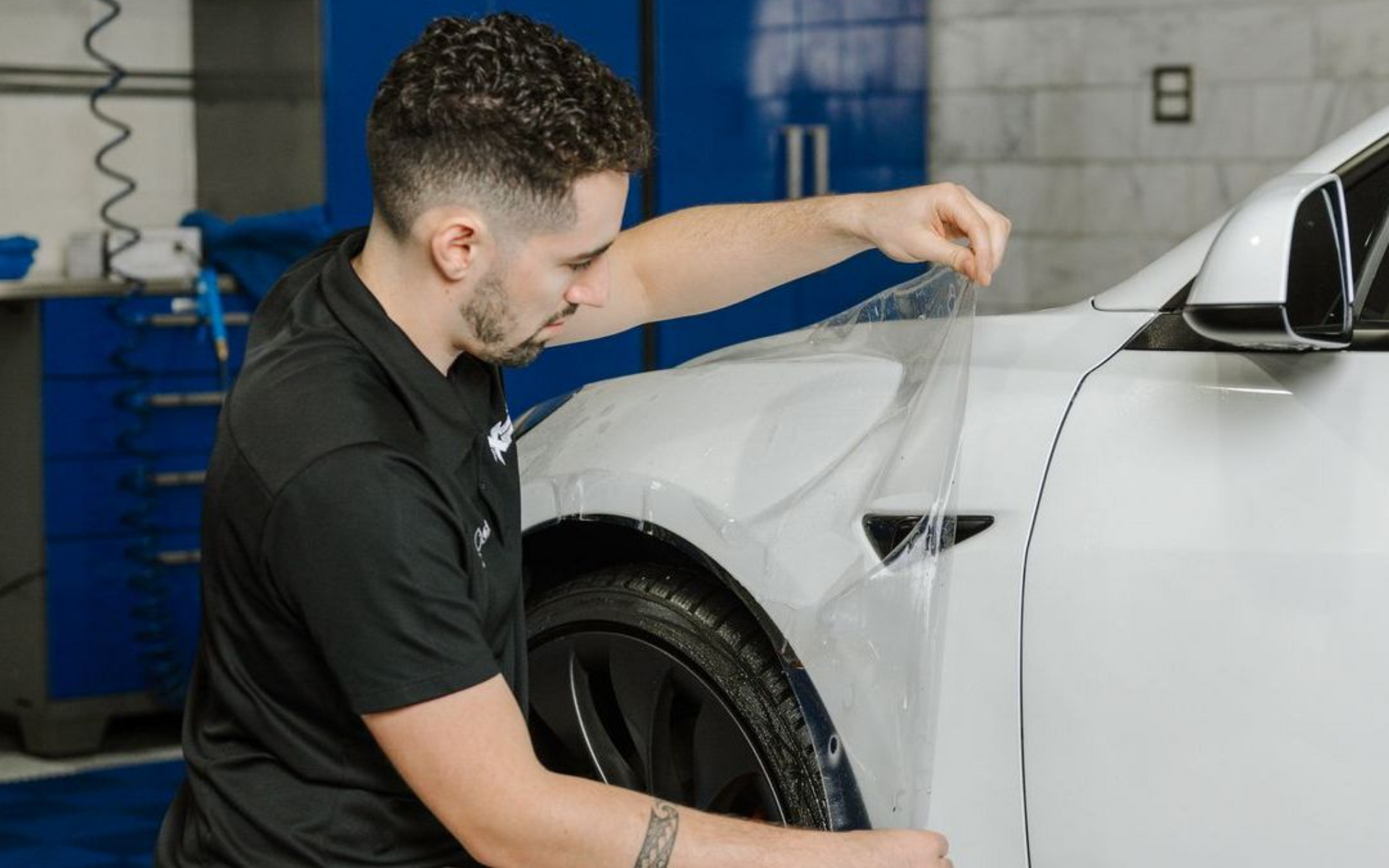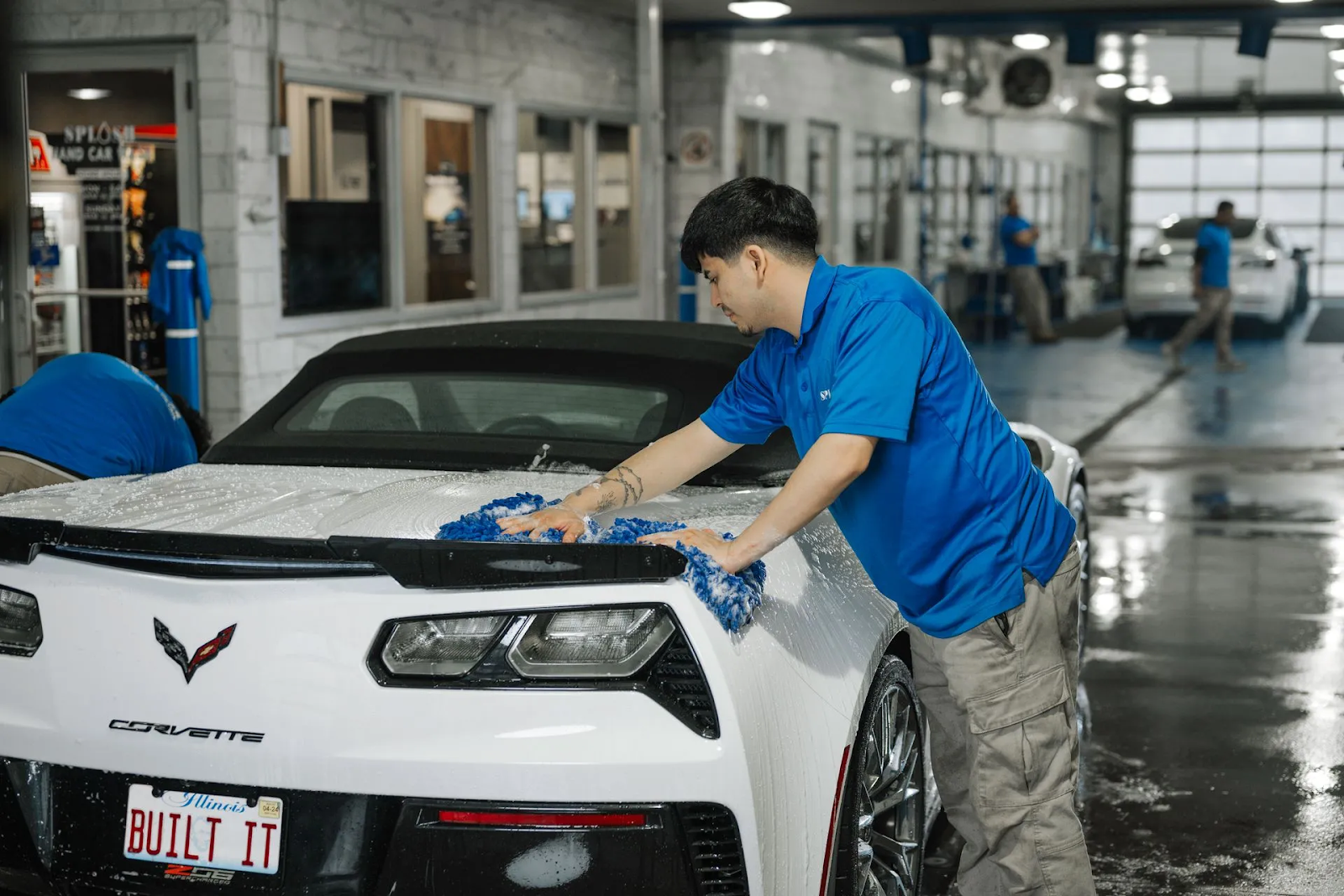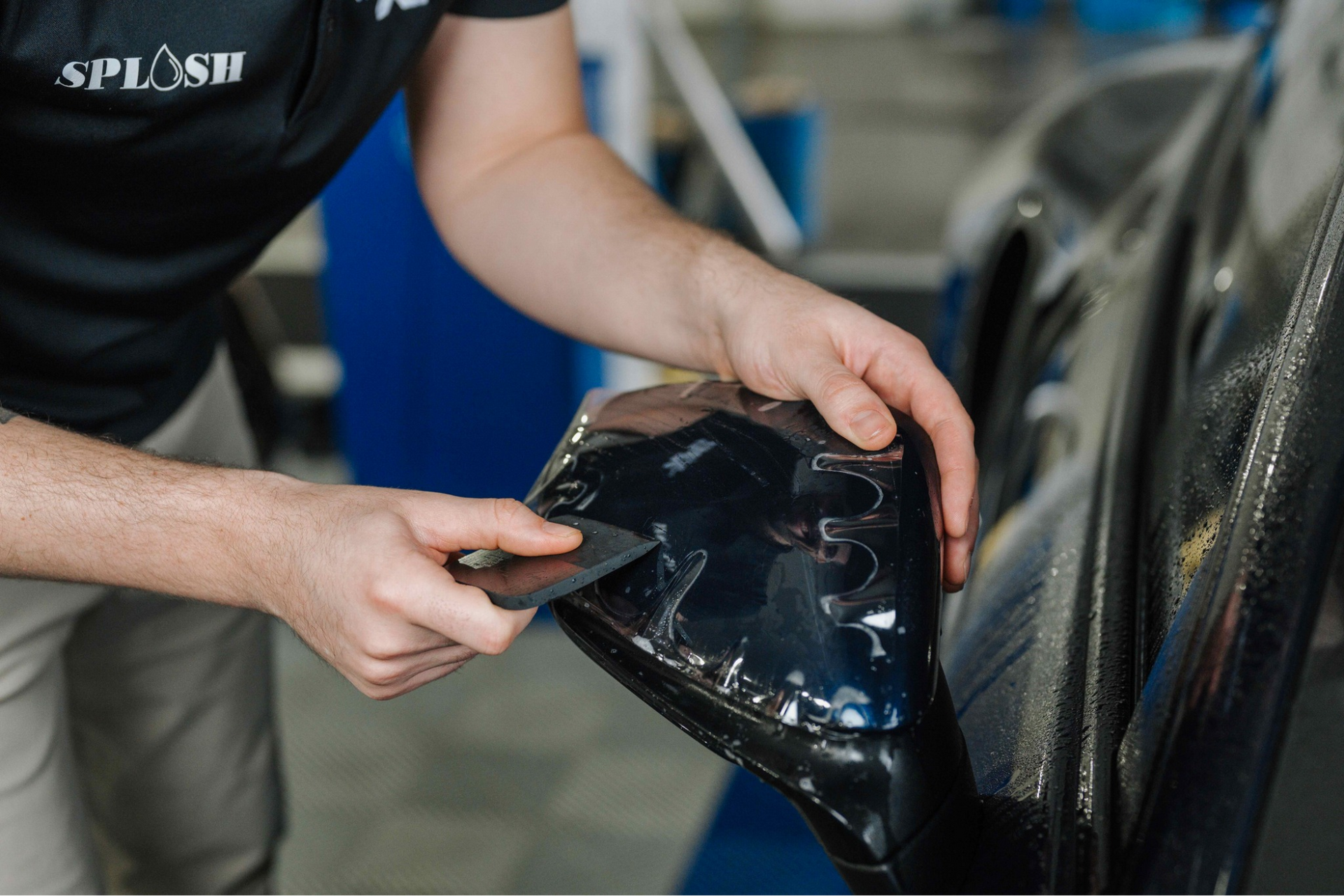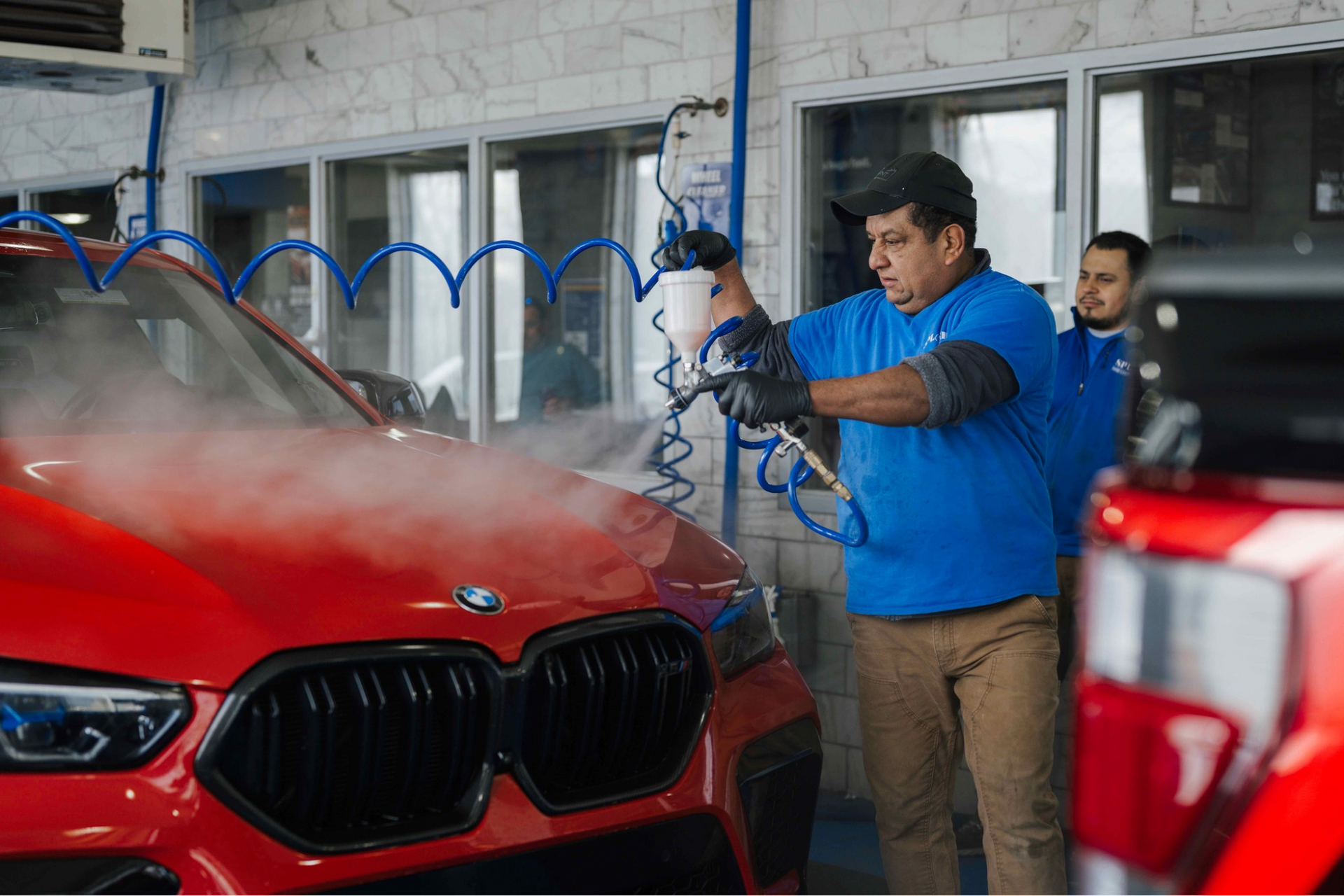Your vehicle is one of your most valuable investments—second only, perhaps, to your home. Whether you use it for commuting, road trips, or daily errands, your car is exposed to a wide range of environmental factors every single day. And protecting it goes far beyond simply keeping it clean or maintaining that showroom shine. It’s about long-term preservation: maintaining your vehicle’s exterior not only helps retain its visual appeal but also plays a critical role in holding its value, extending its lifespan, and preventing costly repairs down the line.
From harsh winters and salty roads to the blazing summer sun and acidic bird droppings, vehicles in Libertyville, IL face seasonal extremes that can take a toll on your paint. Without proper protection, your vehicle’s paint can fade, oxidize, corrode, or develop imperfections that diminish its overall value and appearance. That’s why more and more car owners are taking proactive steps to shield their vehicles from these hazards.
For decades, many drivers have relied on time-tested products like carnauba wax and synthetic paint sealants to serve as a barrier between their vehicle’s finish and the elements. These solutions, while effective to a degree, have limitations in terms of durability and maintenance requirements. They offer a temporary layer of protection and need to be reapplied frequently to maintain their effectiveness—especially in regions with demanding climates like northern Illinois.
But in recent years, the emergence of ceramic coating technology has reshaped the way drivers approach paint protection. What started as a premium option for exotic and luxury vehicles has now become more accessible to everyday drivers—and for good reason. Ceramic coatings are known for their durability, superior protection, and ability to repel water, dirt, and contaminants for years rather than months.
With ceramic coating in Libertyville, you’re not just protecting your car’s paint, you’re also preserving its resale value. This affordable investment ensures your vehicle stays in pristine condition, year after year, even in the face of harsh local conditions.
Take proactive steps to shield your vehicle from the extremes of Libertyville’s seasons—opt for ceramic coating in Libertyville and enjoy a glossy, well-protected car all year long.
So, what makes ceramic coating stand out from traditional options like wax and sealants? Is it worth the higher upfront cost? And which solution is truly best for Libertyville drivers who face year-round environmental threats?
The short answer: yes, ceramic coating is better. But to fully understand why, we need to take a closer look at how each method performs in the areas that matter most—durability, water repellency, UV protection, resistance to environmental contaminants, maintenance requirements, and overall value.
Why Paint Protection Is Essential for Libertyville Drivers
Libertyville’s climate introduces a full spectrum of challenges to your car’s paint—from freezing winters with road salt to hot, sunny summers and pollen-filled springtime. Each season brings contaminants that can dull your paint, promote corrosion, and reduce your car’s resale value.
Even everyday hazards like tree sap, bird droppings, bug splatter, and UV rays can break down your vehicle’s clear coat if left unchecked. That’s where protective products come in.
But not all paint protection products are created equal. Let’s dive into the traditional and modern methods.
The Classic Choices: Wax and Paint Sealants
Carnauba Wax
For decades, carnauba wax has been the go-to product for weekend detailers. Derived from the leaves of the Brazilian carnauba palm, this wax is known for its rich, warm glow and ability to enhance the visual appeal of paint. It adds a temporary layer that repels water and provides some UV protection.
Pros:
- Delivers a deep, glossy shine
- Inexpensive and widely available
- Easy to apply and buff off
Cons:
- Lasts just 4–8 weeks
- Vulnerable to weather conditions
- Offers minimal chemical resistance
- Requires frequent reapplication
Car wax is ideal for enthusiasts who enjoy detailing their car every few weeks and want an affordable, short-term shine.
Paint Sealants
Paint sealants were developed as a synthetic alternative to wax. They contain polymer-based formulas that chemically bond with the paint surface to provide better durability and weather resistance.
Pros:
- Lasts longer than wax (4–6 months)
- Provides moderate protection against UV and contaminants
- Easy to apply, even for beginners
Cons:
- Lacks the warm shine of carnauba wax
- Still needs reapplication every few months
- Not as chemically resistant as ceramic coating
Sealants are a step up from wax and suitable for drivers looking for a bit more longevity without a huge investment.
The Modern Solution: Ceramic Coating
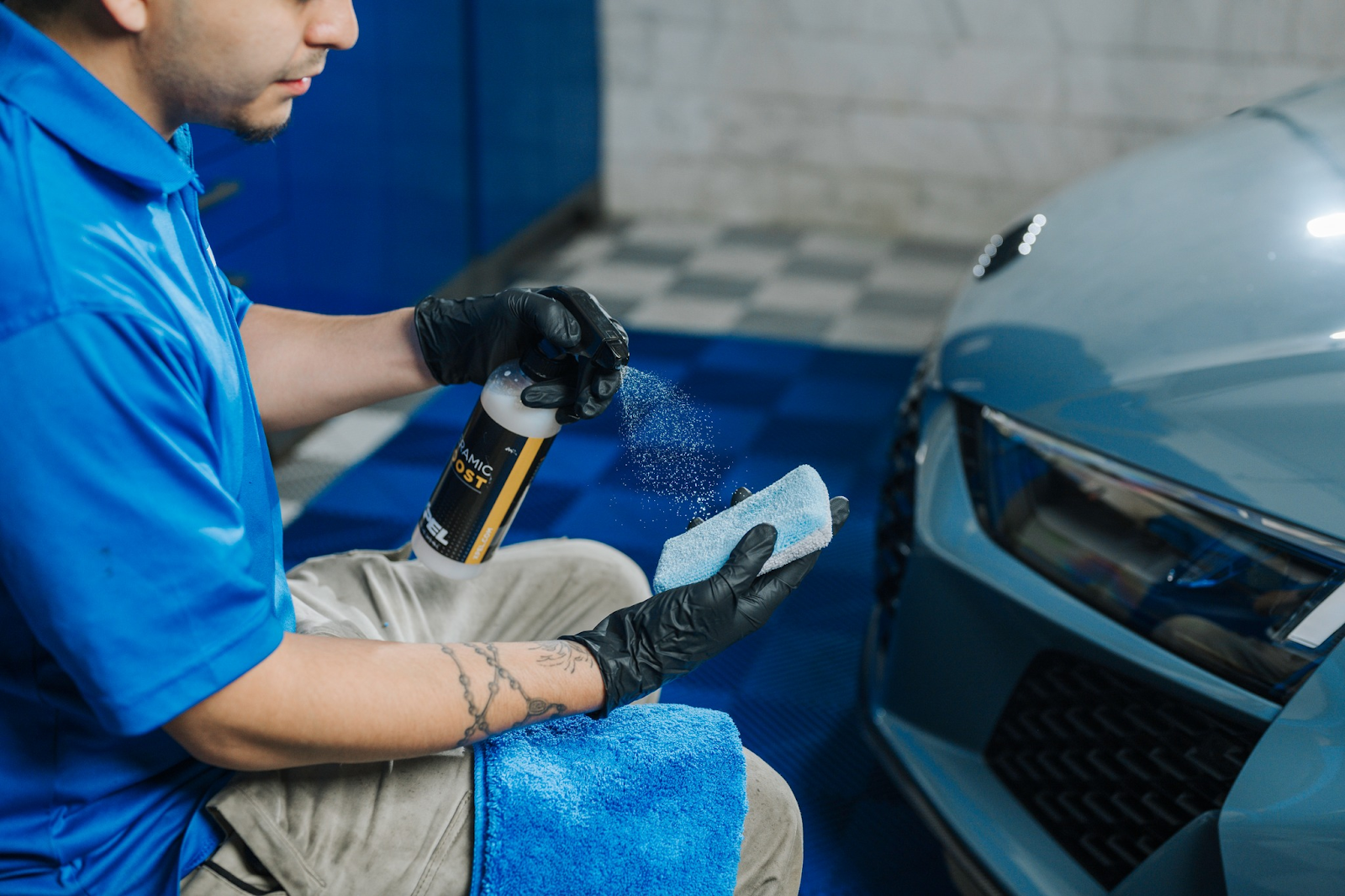
Ceramic coating represents a breakthrough in automotive paint protection. Made from nanotechnology-based compounds like silicon dioxide (SiO₂), it creates a hard, glass-like shell over your vehicle’s paint. This shell chemically bonds with your car’s clear coat, offering long-term defense against oxidation, UV rays, road salt, chemicals, and more.
Pros:
- Lasts 2 to 5 years or longer
- Extreme resistance to UV damage, oxidation, bird droppings, and road grime
- Unmatched hydrophobic properties—water beads and rolls off easily
- Reduces need for frequent washing
- Enhances paint clarity and gloss
Cons:
- Higher upfront cost
- Requires intensive surface preparation
- Best applied by trained professionals
For Libertyville drivers battling snow, salt, sun, and other environmental challenges, ceramic coating offers year-round, low-maintenance protection that traditional products simply can’t match.
Side-by-Side Comparison: Wax vs Sealant vs Ceramic Coating
| Feature | Wax | Sealant | Ceramic Coating |
|---|---|---|---|
| Durability | 1–2 months | 4–6 months | 2–5+ years |
| UV Protection | Low | Moderate | High |
| Water Repellency | Moderate | Good | Excellent |
| Contaminant Resistance | Low | Medium | High |
| Ease of Maintenance | Frequent upkeep | Occasional upkeep | Low maintenance |
| Upfront Cost | Low | Moderate | High |
| Long-Term Value | Low | Medium | Excellent |
Performance Breakdown
Durability
- Wax breaks down quickly, especially during Libertyville’s snowy winters or hot summers.
- Sealants offer more staying power but still degrade after a few months.
- Ceramic coatings form a long-term protective barrier that stays intact for years with minimal care.
Verdict: Ceramic coating wins in terms of longevity.
Water Repellency
Water repellency is more than just aesthetics—it helps prevent water spots and keeps your car cleaner longer.
- Wax and sealant lose their hydrophobic properties after several washes.
- Ceramic coatings maintain water beading for years, thanks to their nano-structured surface.
Verdict: Ceramic coating offers longer-lasting hydrophobic protection.
Contaminant Protection
Contaminants like bird droppings, road salt, and pollen can etch into your paint over time.
- Wax offers minimal defense.
- Sealants improve chemical resistance but fade with time.
- Ceramic coatings offer a bonded shield against etching, corrosion, and oxidation.
Verdict: Ceramic coatings provide the highest level of protection.
Ease of Maintenance
- Wax and sealants require frequent washing and reapplication.
- Ceramic coatings repel dirt, mud, and grime, significantly reducing cleaning time and frequency.
Verdict: Ceramic coating saves time and effort in the long run.
Cost and Value
- Wax is affordable, but the costs add up due to monthly applications.
- Sealants are a middle-ground option.
- Ceramic coating costs more initially but pays off in long-term value, reduced maintenance, and superior protection.
Verdict: Ceramic coating is the best investment for long-term protection.
Professional vs DIY Installation
While wax and sealants are simple to apply at home, ceramic coatings require skill, precision, and proper surface preparation. DIY kits are available but can lead to errors if applied incorrectly—resulting in streaks or poor bonding.
At Splash Hand Car Wash and Detail in Libertyville, IL, our certified technicians follow a meticulous multi-step process:
- Surface decontamination
- Paint correction (if needed)
- Panel-by-panel ceramic application
- Curing for optimal bonding
Our process ensures a flawless finish and long-lasting protection that DIY kits simply can’t match.
Which Option Is Right for You?
Choosing the best paint protection for your vehicle isn’t a one-size-fits-all decision. It ultimately comes down to your personal preferences, how you use your vehicle, how much time you’re willing to spend on maintenance, and what kind of long-term results you’re looking for.
If you're someone who enjoys detailing your car on a regular basis—perhaps it's a weekend hobby or part of your car care routine—wax or paint sealant may be perfectly sufficient. These options are budget-friendly, easy to apply, and can give your vehicle a vibrant, polished look. However, keep in mind that the protection they provide is temporary. Both wax and sealant need to be reapplied regularly to maintain effectiveness, especially in a place like Libertyville, IL, where vehicles are constantly exposed to changing weather conditions, road salt, and UV rays.
On the other hand, if you’re a busy professional, a daily commuter, or simply someone who wants lasting protection without the hassle of frequent upkeep, ceramic coating is the clear winner. It offers unmatched durability, long-term protection, and exceptional resistance to environmental contaminants. Once professionally applied, it bonds to your vehicle’s paint and can last for years, significantly reducing the need for regular washes and reapplications.
Ceramic coating is also a smart choice if you plan to keep your vehicle for a long time or are concerned about resale value. The enhanced gloss, hydrophobic properties, and protective barrier all work together to keep your car looking newer for longer, which can pay off down the road.
Still undecided? Here’s a quick way to think about it:
- Choose Wax if you enjoy the hands-on process of car care, want an affordable short-term solution, and don't mind monthly upkeep.
- Choose Sealant if you're looking for better longevity than wax but still want to keep costs moderate and maintenance simple.
- Choose Ceramic Coating if you want the best long-term protection, a brilliant finish, minimal upkeep, and peace of mind through every season.
In the end, no matter which option you choose, the goal is the same: to protect your investment and keep your vehicle looking its best. The difference lies in how much time, effort, and money you're willing to commit—and how much value you place on lasting performance.
Protect Your Investment with Splash Hand Car Wash and Detail
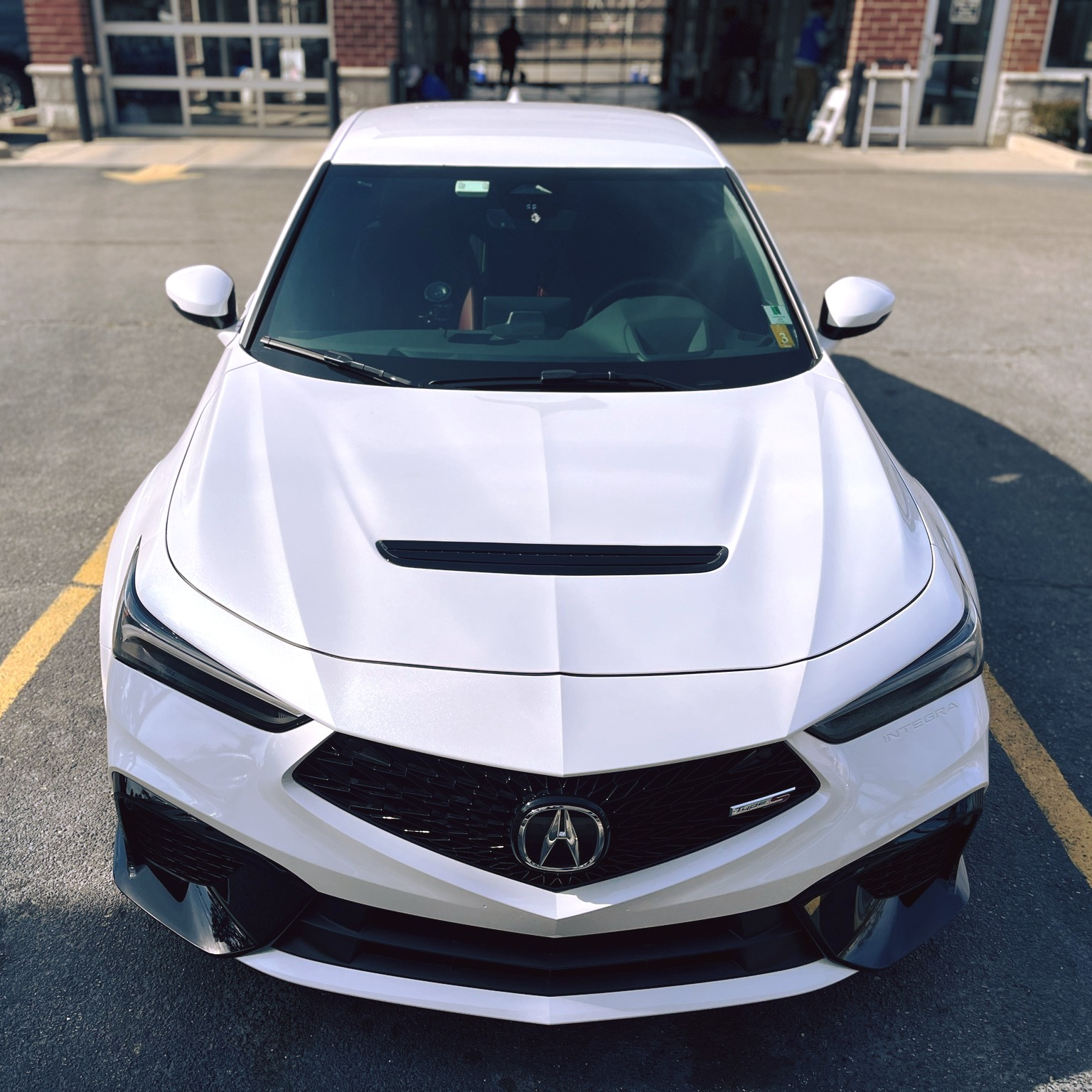
Your vehicle is more than just a mode of transportation—it’s an investment. And like any investment, it deserves to be protected with the best solutions available. If you're ready to move beyond temporary fixes like wax or short-term sealants, it’s time to consider the lasting benefits of ceramic coating.
At Splash Hand Car Wash and Detail in Libertyville, IL, we specialize in professional ceramic coating services that are tailored to your vehicle’s needs and your lifestyle. Our team of trained technicians uses premium-grade ceramic coating products and follows a meticulous application process that ensures maximum durability, shine, and protection.
Whether you're driving a daily commuter, a luxury sedan, or a brand-new SUV, ceramic coating offers a superior layer of defense against harsh weather, UV rays, road salt, water spots, bird droppings, and other environmental contaminants that can damage your vehicle’s finish over time.
When you choose Splash Hand Car Wash and Detail, you're not just getting a product—you’re getting personalized service, expert advice, and results that last. We take pride in helping Libertyville drivers protect their vehicles the smart way, with long-term protection that enhances appearance and simplifies maintenance.
Don’t settle for short-term shine—invest in lasting protection. Contact us today to book a consultation or get more information about our ceramic coating packages. Our friendly team is ready to answer your questions, walk you through the process, and help you choose the right package for your vehicle. Drive with confidence through every season—rain, sun, or snow—knowing your paint is protected the right way.

